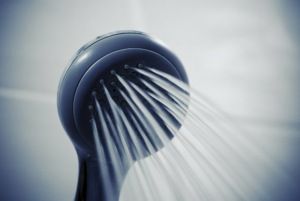News
National Round-Up: SSI – don’t take colder showers
This article is more than 3 years old.
Elsewhere, there are too many tailgaters on the road these days and Denmark’s military presence in the Arctic is woefully poor

Don’t turn down that heat in the shower (photo: Pixabay)
The State Serum Institute (SSI) has warned against taking showers and baths using colder water than usual due to the energy crisis.
Doing so can increase the growth of Legionella, a bacteria that can cause severe pneumonia.
Many Danes are trying to minimise their energy consumption at the moment to counteract rising prices, but turning the temperature down too low or using too little hot water can lead to health problems such as Legionella.
The illness causes up to 300 hospitalisations a year and it is particularly the endlerly or vulnerable people who are at risk of contracting it.
READ ALSO: Electricity prices dip to lowest level since May
Flush with roasting water
Legionella doesn’t grow at temperatures under 20 degrees and it dies when temperatures exceed 50 degrees.
SSI recommends turning on the water to maximum heat once per week to kill off any Legionella that may be growing there.
Do so before getting into the shower or bath, obviously.
Too many tailgaters
A survey by traffic safety council Rådet for Sikker Trafik showed that half of all drivers often feel that the car behind them is driving too close and not keeping enough distance. As well as being illegal and dangerous, this causes discomfort and nervousness among those affecte. Tailgating can lead to a clip in the driving licence, a 2,000 kroner fine and an additional 500 kroner fee for the Victims’ Fund. If you drive dangerously close, your driving licence can also be suspended.
Highly-educated, male MPs
People with a long higher education are over-represented in Parliament compared to the population by 47 percent, according to Danmarks Statistik. In contrast, people with primary or vocational education as the highest level of education are under-represented in Parliament. So are people under 25 years and over 70 years of age. The proportion of women in Parliament was 39 percent in the last general elections which, together with the 2011 elections, saw the highest proportion of women ever elected. However, the proportion is lower than in the population as a whole.
A massacre on the C25
The Danish stocks hit their worst month in 11 years in September. On the last day of the month,, the main Danish stock index C25 closed with another fall. This time by almost 3 percnt. In total, more than 14 percent of the value of C25 shares was shed in September, equivalent to about 370 billion kronor. A number of economists agree that Denmark is heading for a recession.
Power plants stay open
The government is temporarily postponing the closure of three Danish power plants to ensure electricity security for the next two winters. The measure is prompted by Russia’s gas cuts and the possibility of a sub-performance year for wind energy, causing energy shortages in Denmark. It is a temporary solution that will not affect Danish climate targets in 2025 and 2030.
Just steal away, apparently
In just one year, food delivery company Just Eat Takeaway has had more than 145 expensive electric bicycles stolen, worth a total of 4.8 million kroner. It appears that groups of youngsters aged 14-20 are behind the thefts.
Defence woes in Arctic
Danish Defence ships and aircraft in the Arctic and North Atlantic are worn down, leaving the surveillance of the area weakened. The head of the Navy confirmed that ships did not patrol the number of times they were supposed to this year. Nine violations of the Commonwealth’s maritime territory off Greenland and the Faroe Islands have been recorded since 2015. Of these, three were Russian research vessels that entered Danish territory without permission. Given the current situation with Russia, defence minister Morten Bødskov said it is necessary to spend “a lot of money” on defence equipment in the future.
Classroom air quality alert
Teachers have criticised the decision to lower temperatures in schools to 19 degrees due to the energy crisis. A 2021 study of the indoor climate in primary schools revealed that around 40 percent of schools have no ventilation system or one that is not functional. The problem increases as temperatures drop and opening doors and windows becomes a problem when it is cold. The increase of CO2 caused by poor ventilation creates an unhealthy environment for students.






































